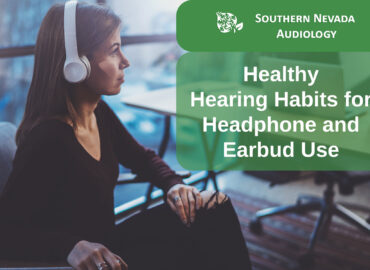Windy Days in Las Vegas: Protecting Your Hearing Aids & Cochlear Implants
Living in Las Vegas, Nevada means enjoying sunshine nearly year-round — but it also means dealing with strong desert winds. From spring gusts sweeping through Summerlin to sudden dust-filled afternoons across the valley, windy conditions here can create real challenges for individuals who wear hearing aids or cochlear implants.
Understanding how wind affects your devices — and how to protect them — can help you hear clearly and extend the life of your equipment.
The Unique Challenge of Las Vegas Wind
Wind in Southern Nevada doesn’t just create noise — it often carries dust, sand, and dry air that can impact both sound clarity and device performance.
Here’s how:
Wind noise interference: Gusts hitting hearing aid microphones create turbulence, producing a loud rushing sound that can mask speech.
Dust infiltration: Fine desert particles can clog microphone ports and vents.
Dry climate irritation: Our low humidity can lead to dryness in the ear canal, affecting comfort and wax buildup.
Debris exposure: Outdoor events, sports games, and walks along the Strip or local parks can increase exposure.
For hearing device users, windy Las Vegas days can mean reduced clarity, listening fatigue, and extra strain.
How to Protect Your Hearing Devices on Windy Las Vegas Days
- Use Wind Protectors or Windscreens
Many modern hearing aids offer small covers designed to reduce wind interference. These soft covers diffuse airflow before it hits the microphone, significantly cutting down wind noise.
If you’re unsure whether your device supports wind protection accessories, ask your hearing specialist.
- Clean Devices After Dusty Days
- Desert wind often means more debris.
- Gently wipe the exterior with a soft, dry cloth.
- Use a soft brush to clean microphone ports and vents.
- Replace wax guards as recommended.
- Routine cleaning is especially important after windy outdoor activities.
- Dry & Dehumidify
While Las Vegas is dry, wind can still introduce moisture — especially during monsoon season or sudden weather shifts.
Using a hearing aid dehumidifier overnight helps remove hidden moisture and protects delicate internal components.
- Secure Your Devices
Strong gusts can loosen hearing aids, particularly behind-the-ear models.
Consider:
- Retention clips
- Sports cords
- Snug-fitting earmolds
These small additions can prevent costly loss or damage.
- Adjust Device Settings
Many advanced hearing aids automatically adjust to wind noise. Others allow manual adjustments through a smartphone app via Bluetooth.
If your devices have a “wind reduction” program, activate it before heading outdoors.
- Wear Protective Gear
A hat, visor, scarf, or hood can shield your devices from direct wind exposure. Even light coverage can significantly reduce wind turbulence around microphones.
- Schedule Routine Professional Maintenance
Desert conditions can accelerate wear and tear.
Regular professional cleanings help:
- Remove compacted dust
- Inspect microphone openings
- Check for internal damage
- Maintain peak performance
Preventive care is especially important in climates like Las Vegas.
- Carry a Small Maintenance Kit
If you’re heading out for the day — whether to a local outdoor festival or a family gathering — bring a small kit with:
- Cleaning brush
- Soft cloth
- Spare batteries or charger
- Portable dehumidifier (if available)
Quick maintenance can prevent bigger problems later.
- Store Devices Properly
When not in use, store your hearing aids in a ventilated protective case, away from windows, heat, and sudden temperature changes. Desert heat combined with dust can shorten device lifespan if they’re left exposed.
Hear Clearly — Even on the Windiest Las Vegas Days
Wind is part of life in Southern Nevada, but it doesn’t have to interfere with your hearing. With proper protection, routine cleaning, and professional maintenance, your hearing aids or cochlear implants can continue performing at their best — no matter how strong the gusts.
If you’ve noticed increased wind noise, reduced clarity, or discomfort during windy days in Las Vegas, it may be time for a device check or professional cleaning.
Southern Nevada Audiology is here to help you protect your investment — and help you hear clearly in every season of desert living.










